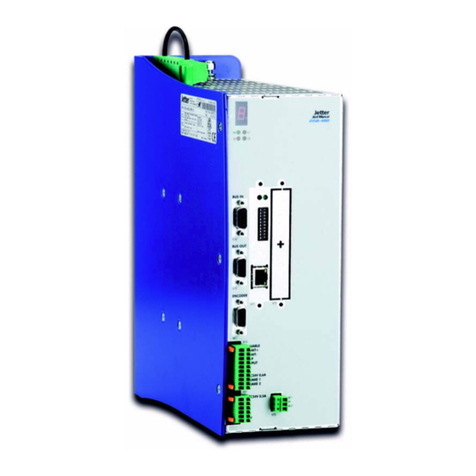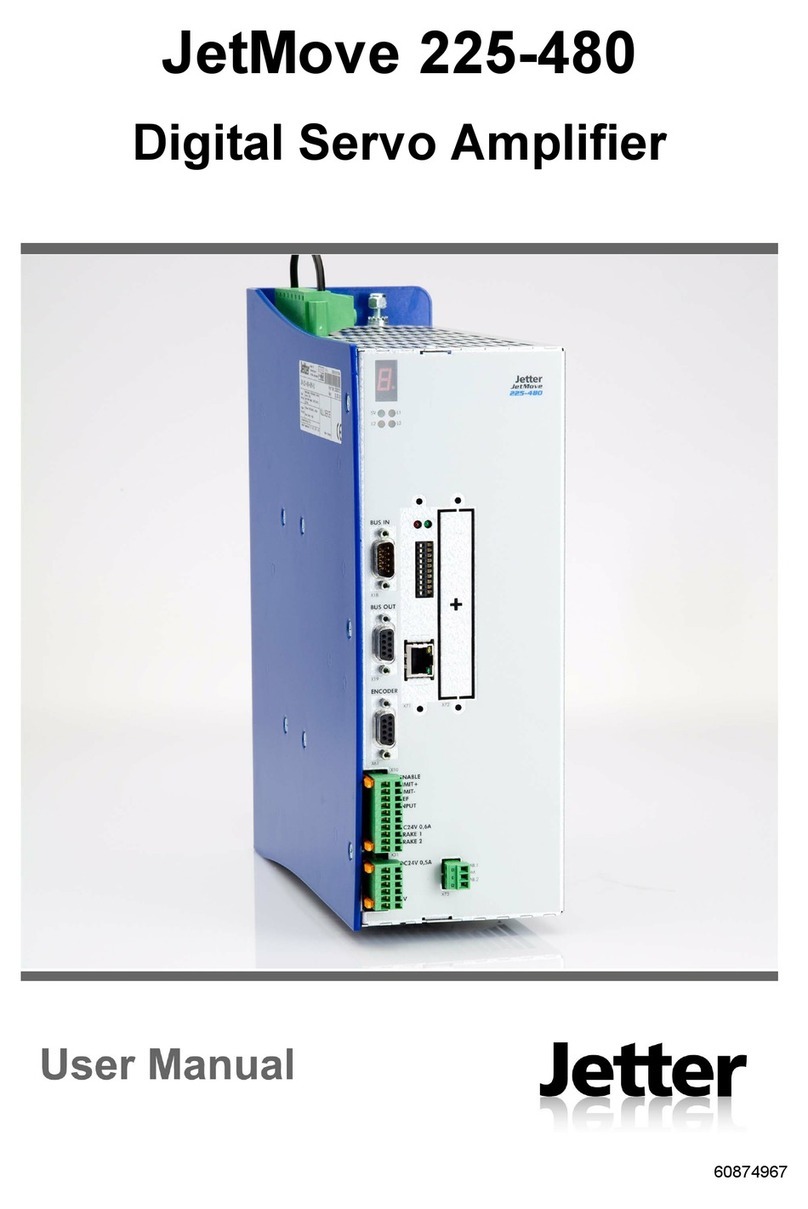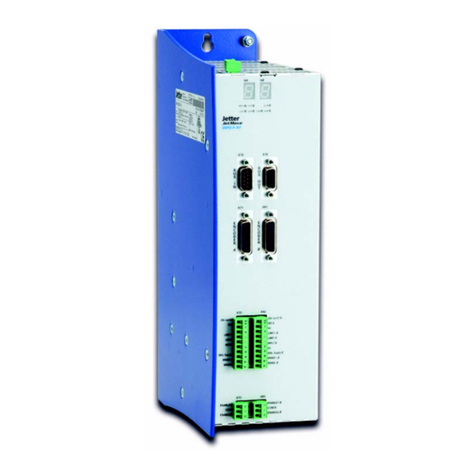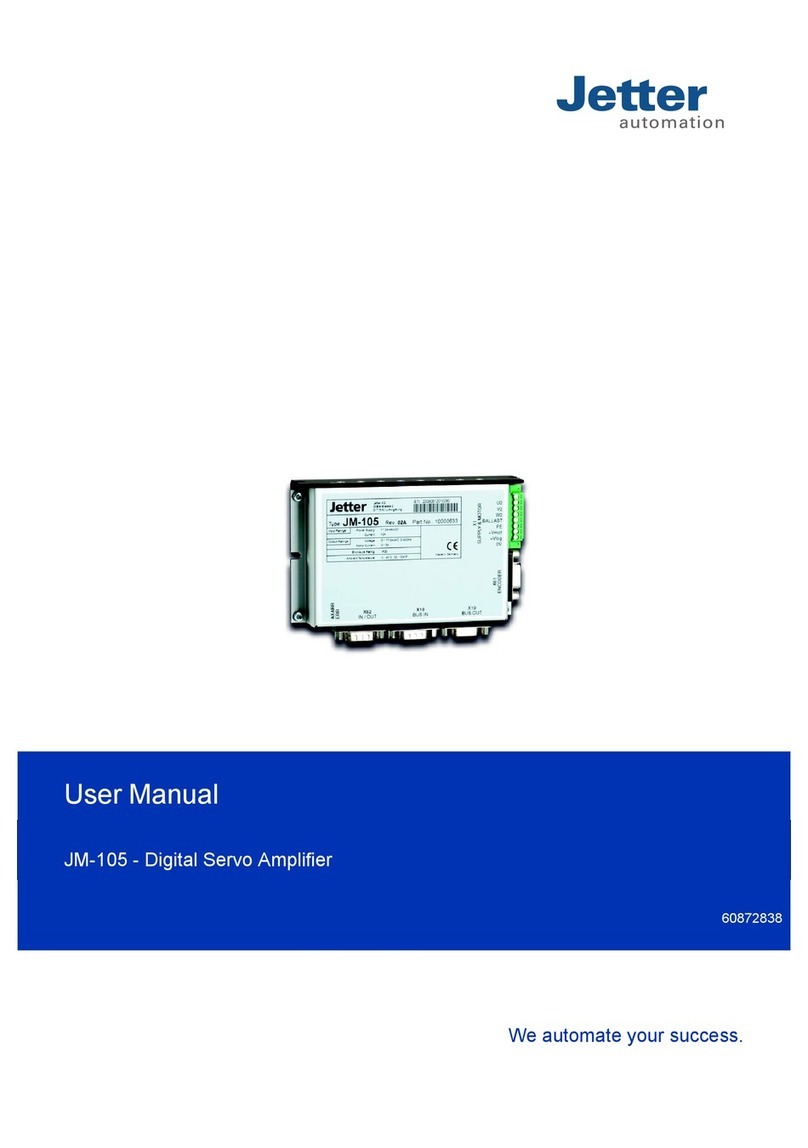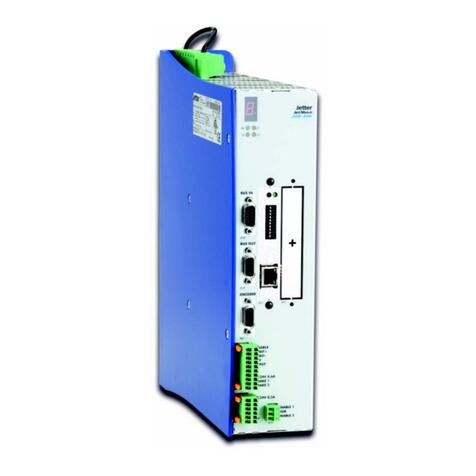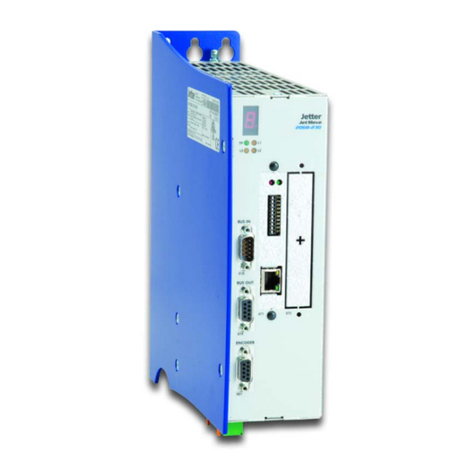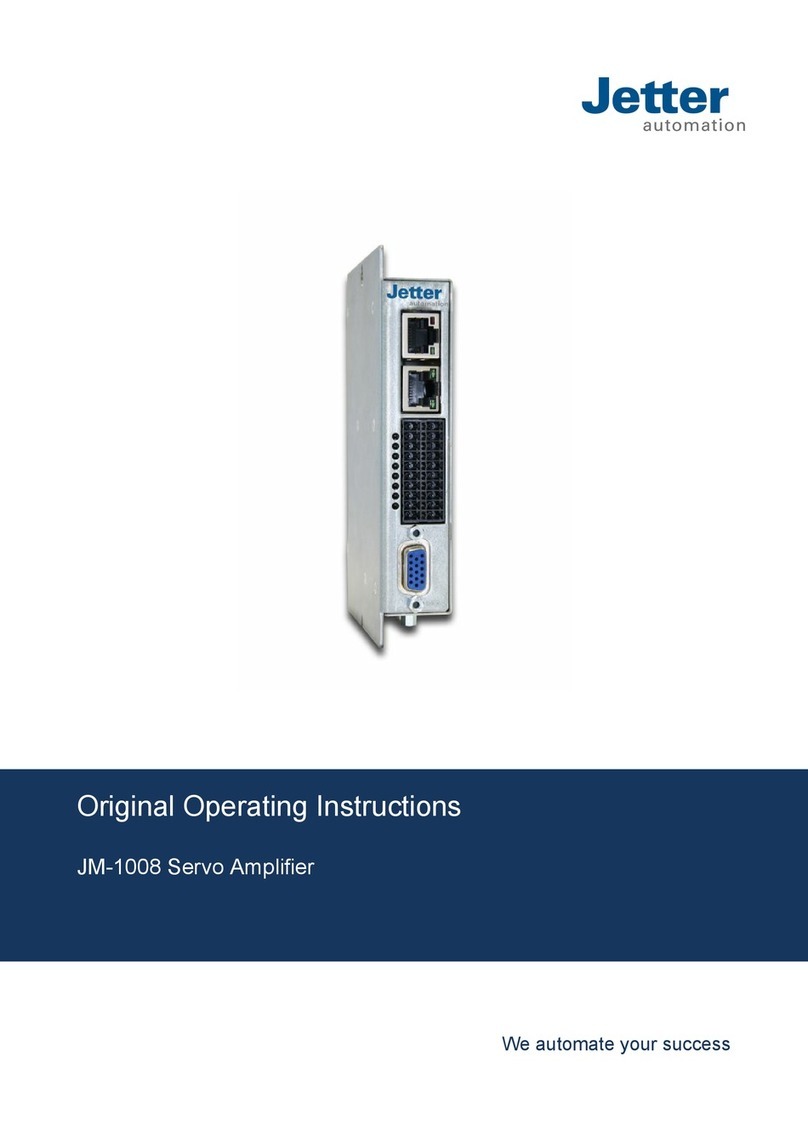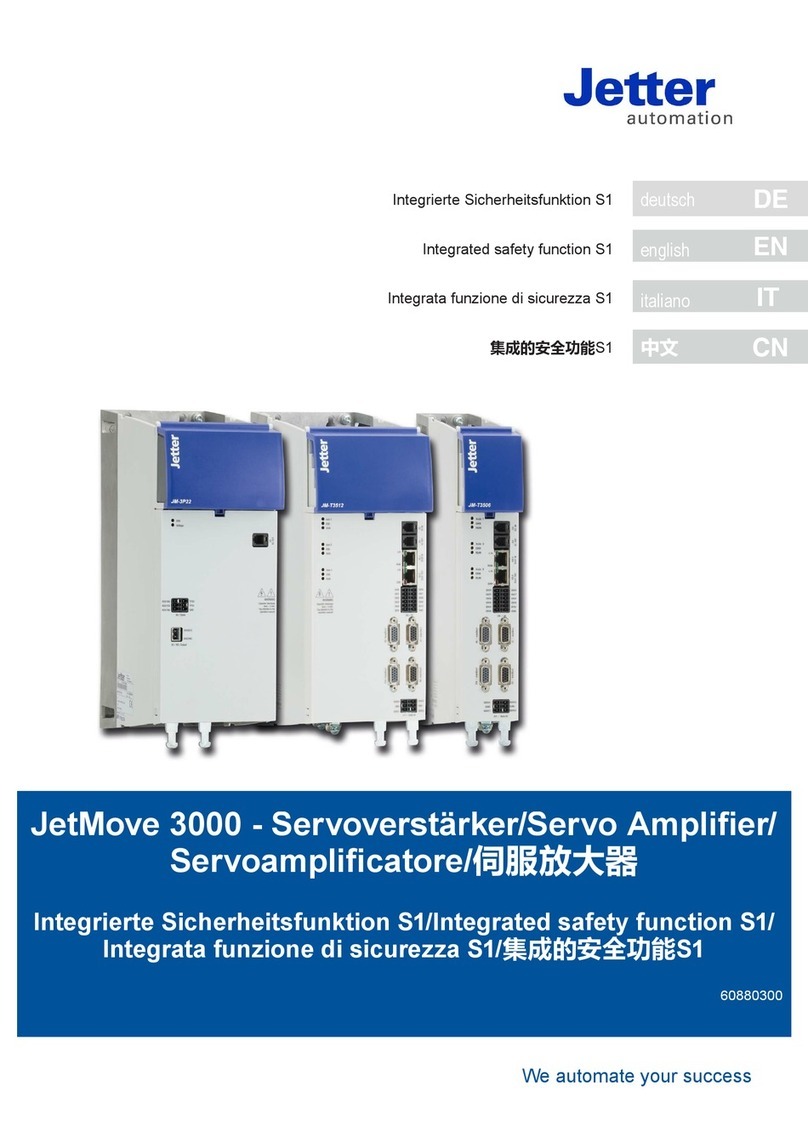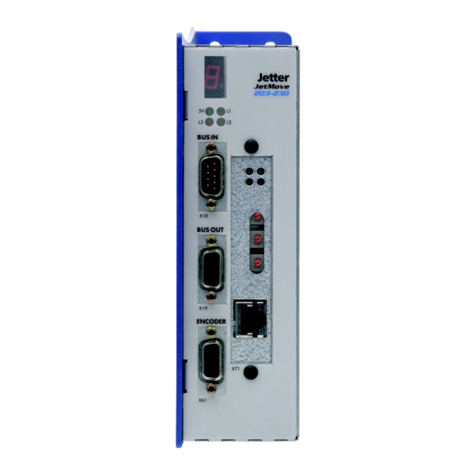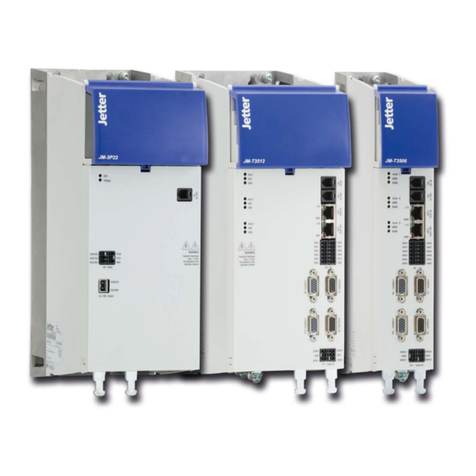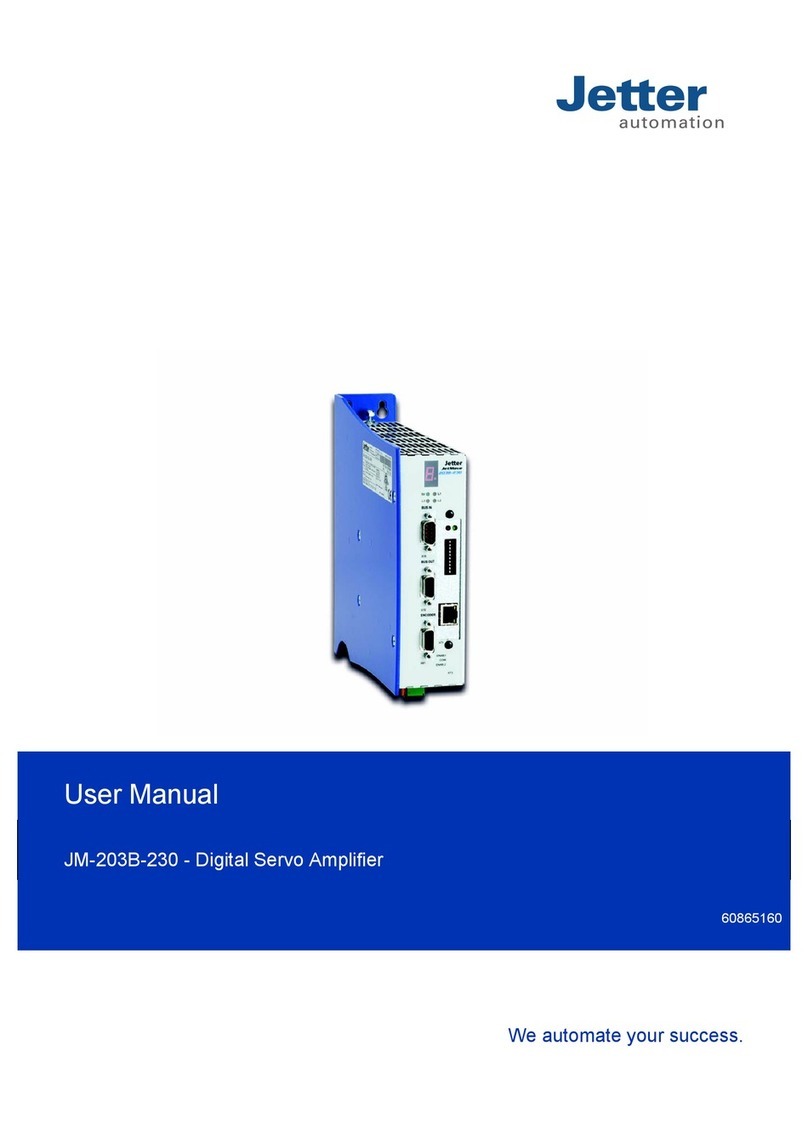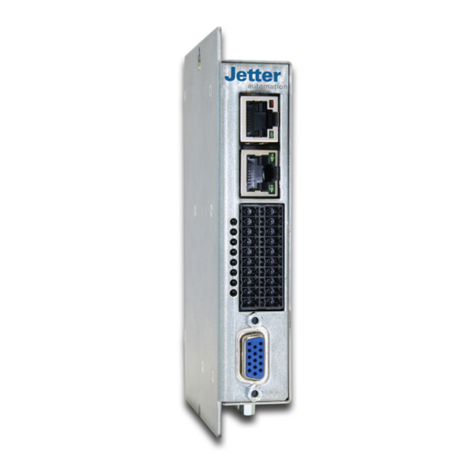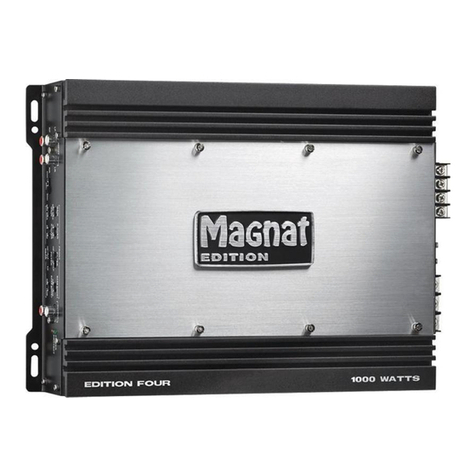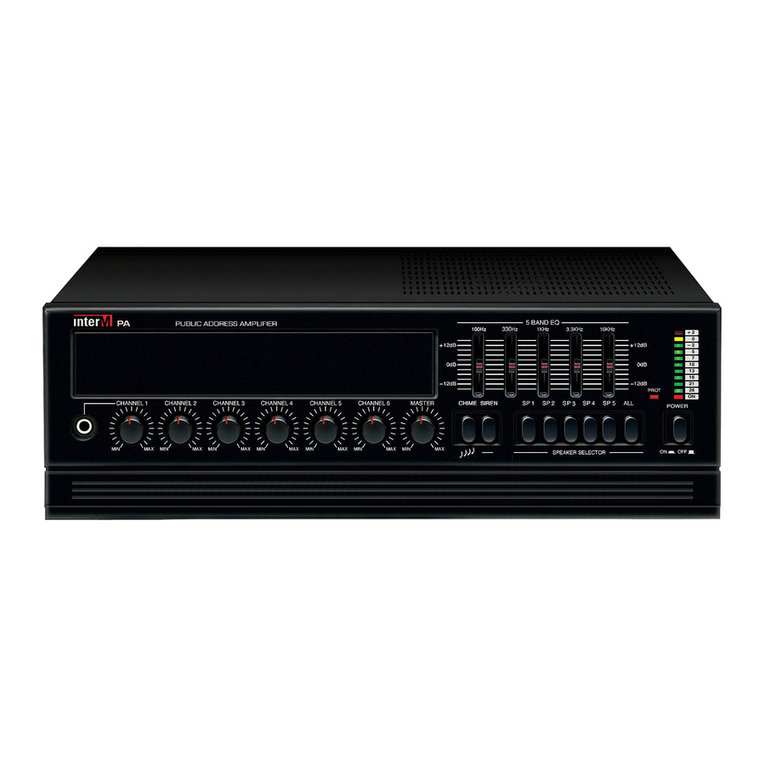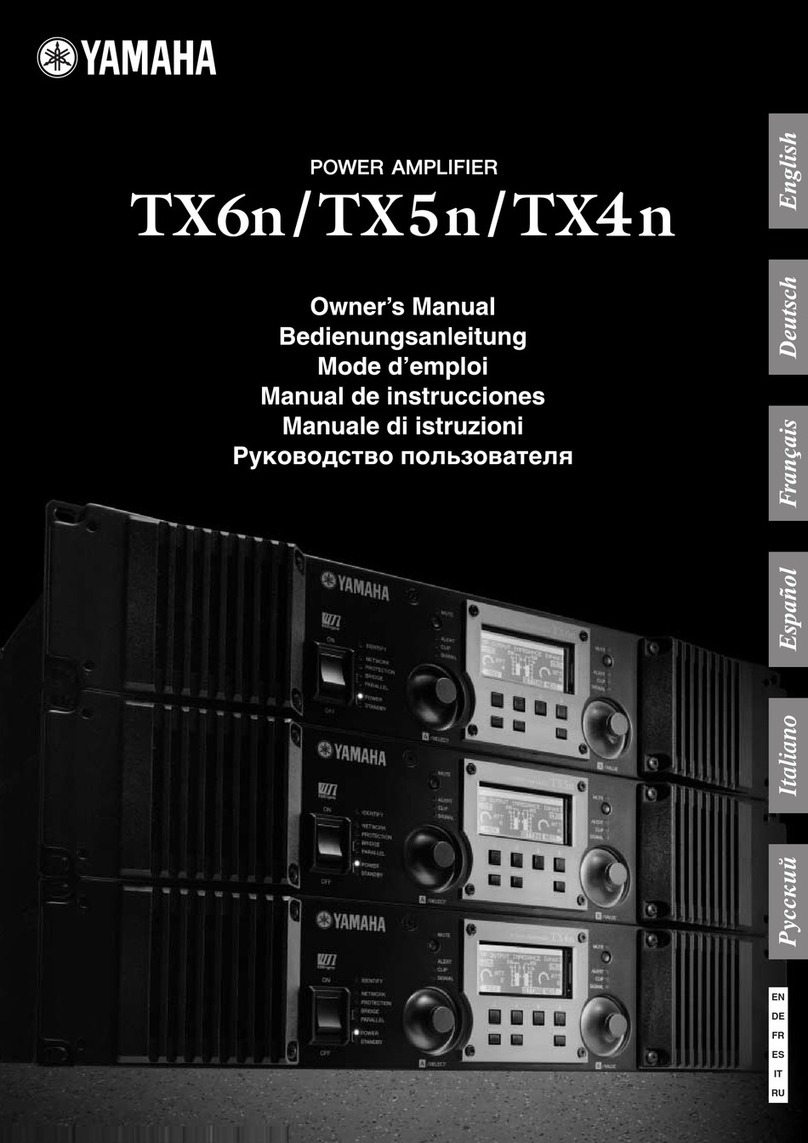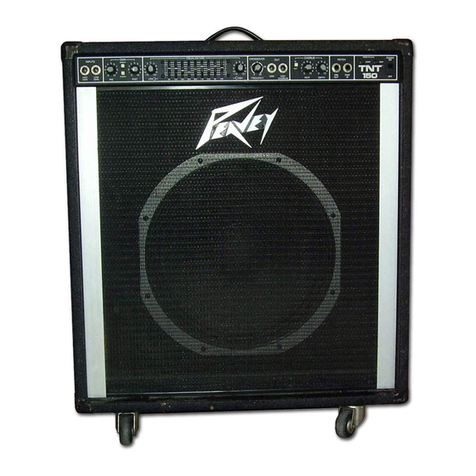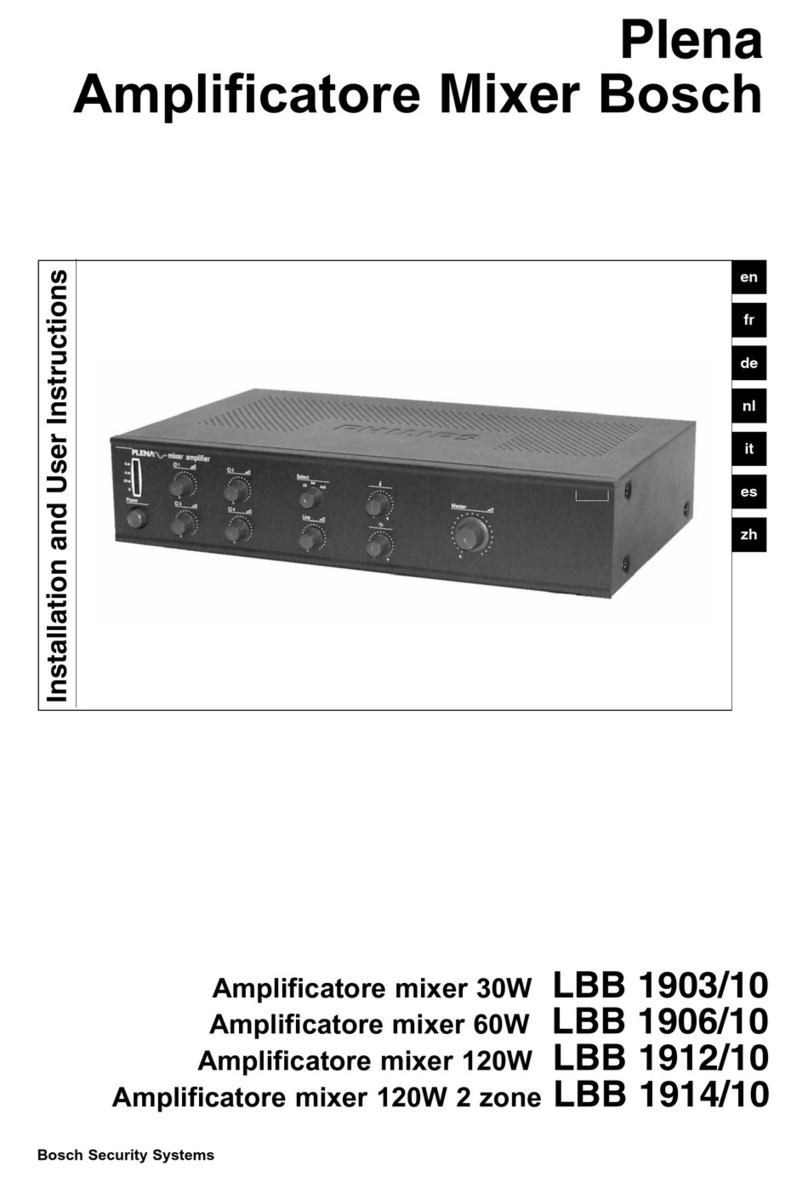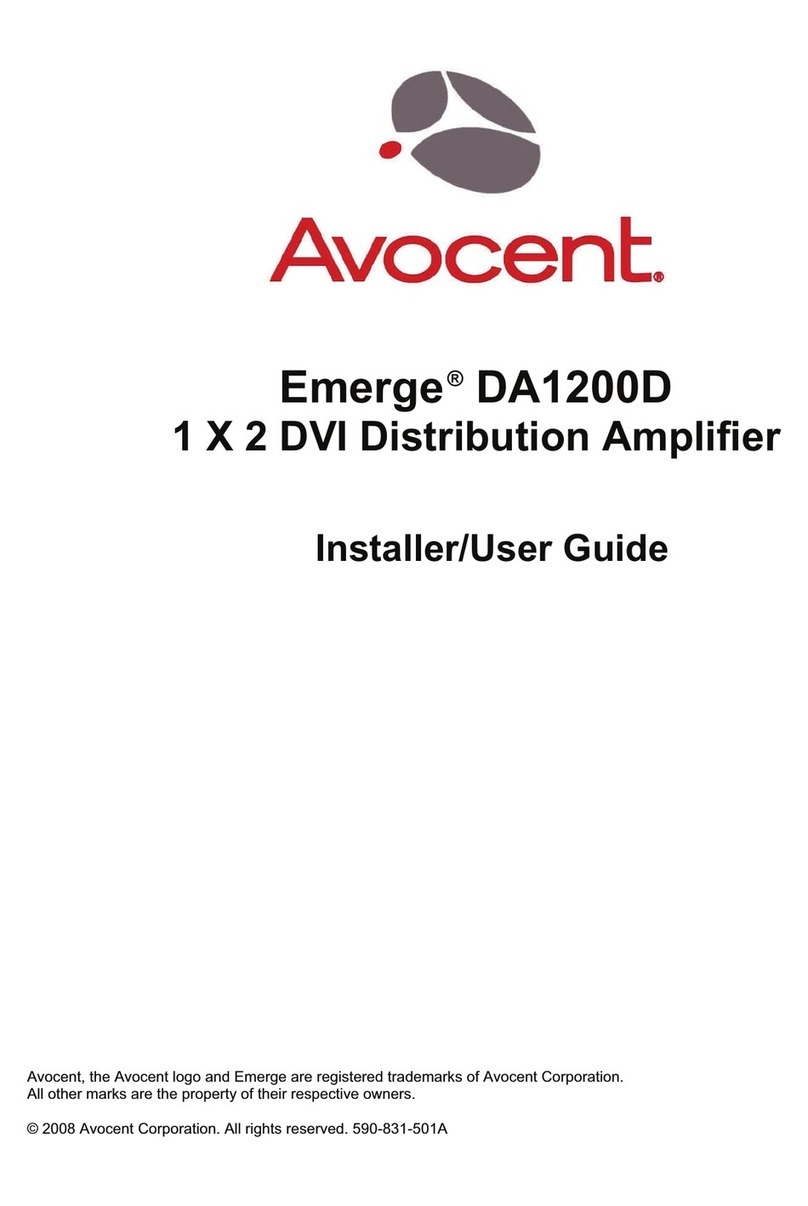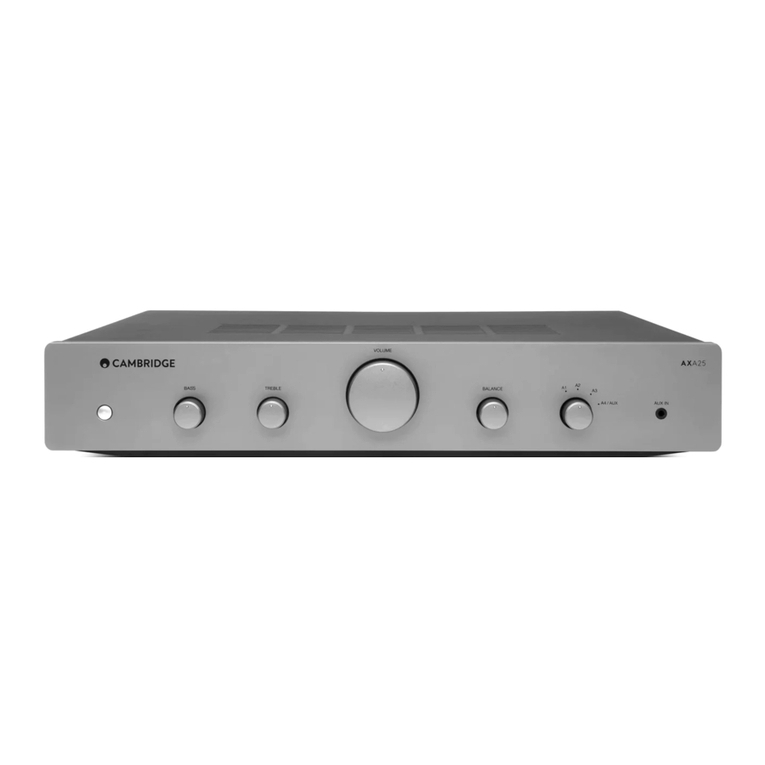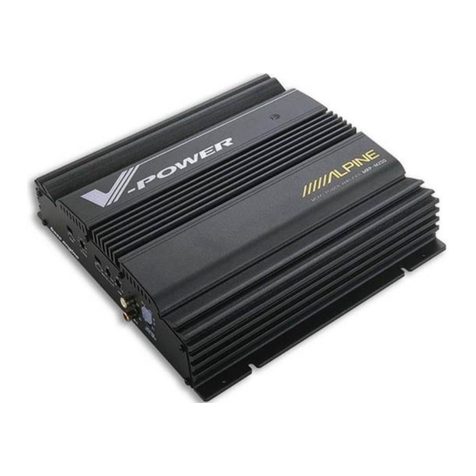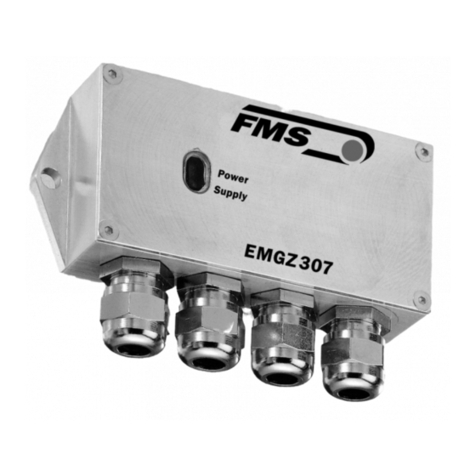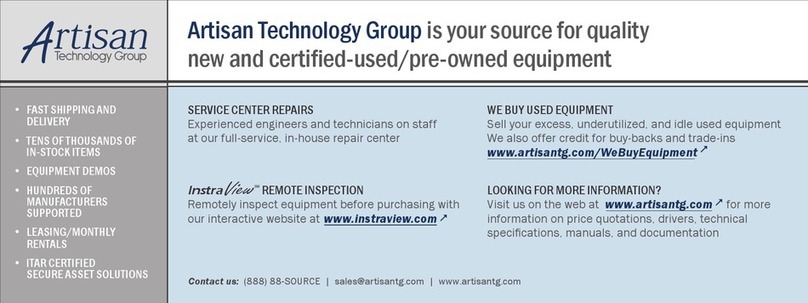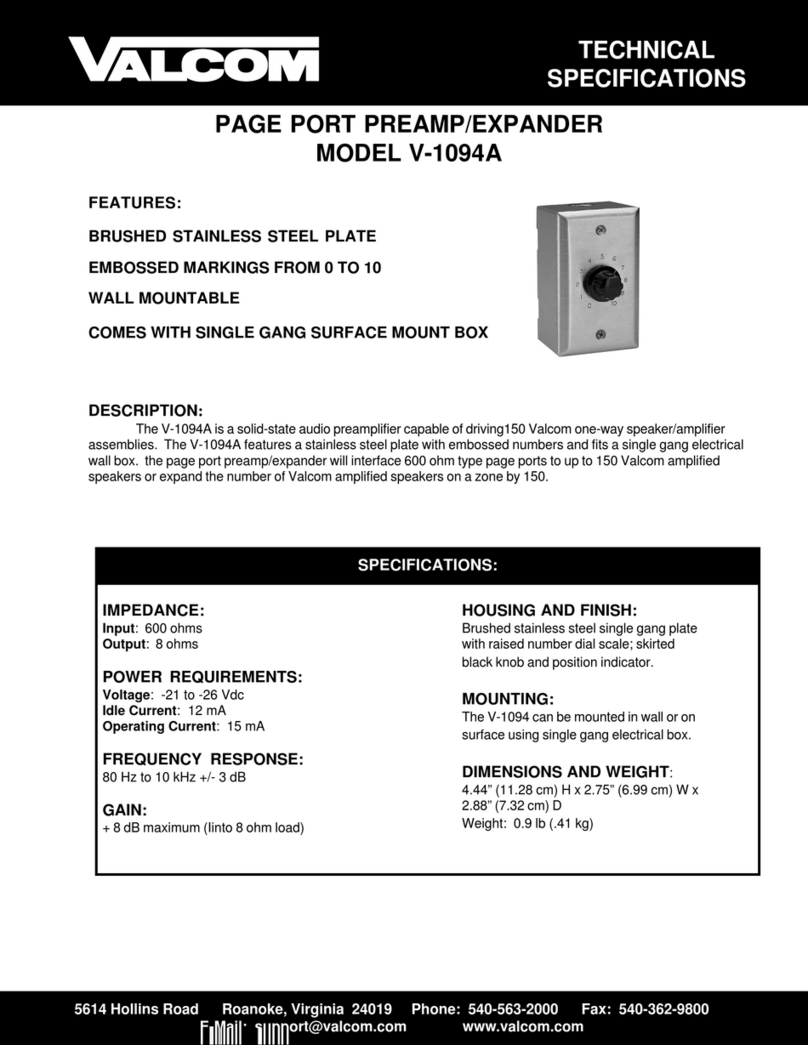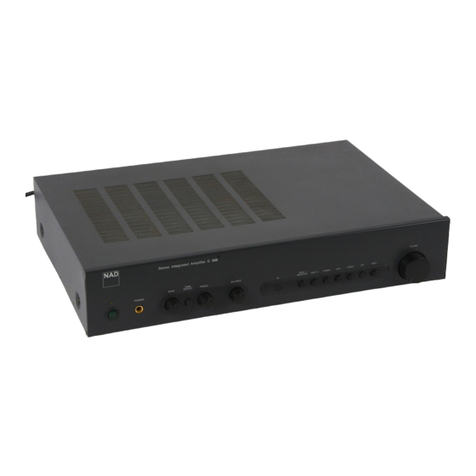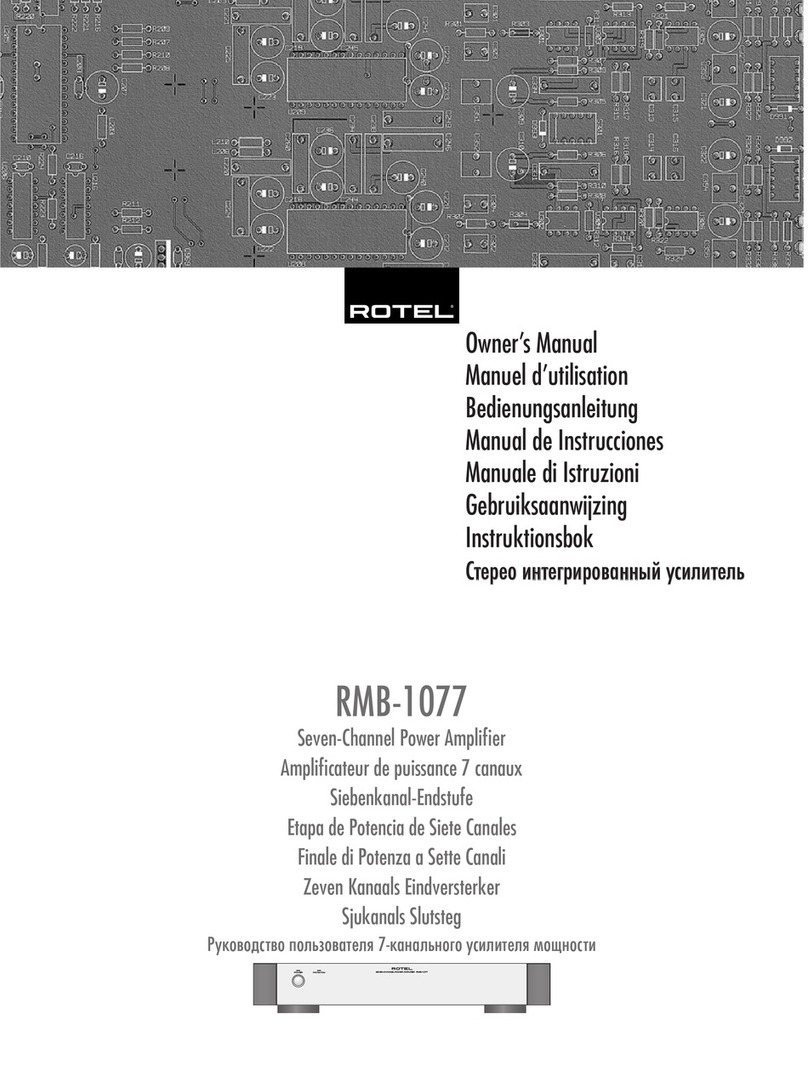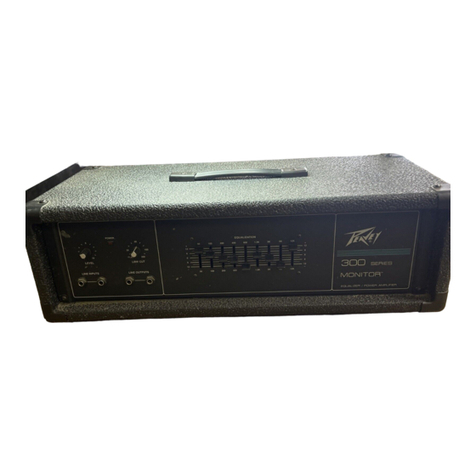
Introduction
4Jetter AG
Significance of this User Manual
This user manual is an integral part of the digital servo amplifier JetMove 208-480.
• Therefore it must be kept in a way that it is always at hand until the digital servo
amplifier JetMove 208-480 will be disposed of.
• Pass this user manual on if the JetMove 208-480 is sold or loaned/leased out.
In any case you encounter difficulties to clearly understand this user manual, please
contact the manufacturer.
We would appreciate any suggestions and contributions on your part and would ask
you to contact us. This will help us to produce manuals that are more user-friendly
and to address your wishes and requirements.
From the servo amplifier JetMove 208-480 module may result unavoidable residual
risks to persons and property. For this reason, any person who has to deal with the
transport, installation, operation, maintenance, and repair of the digital servo
amplifier JetMove 208-480 must have been familiarised with it and must be aware of
these dangers.
Therefore, this person must carefully read, understand and observe this manual, and
especially the safety instructions.
Missing or inadequate knowledge of the manual results in the loss of any claim of
liability on part of Jetter AG. Therefore, the operating company is recommended to
have the instruction of the persons concerned confirmed in writing.
History
Edition Meaning
1.00 Original issue
1.01 Modifications, see Appendix A of user manual rev. 1.01
2.00 Modifications, see Appendix A of user manual rev. 2.00
2.01 Style and orthography have been corrected
2.10 Modifications, see Appendix A of user manual rev. 2.10
2.11 Modifications, see Appendix A of user manual rev. 2.11
